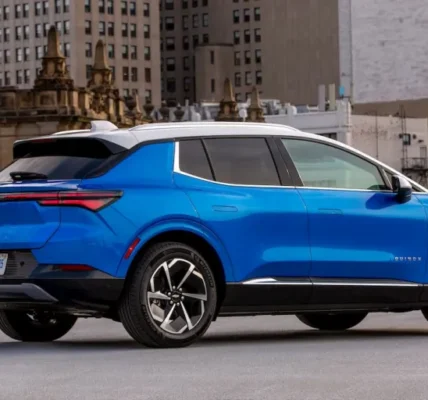The US federal government has a number of policies in place to support the domestic manufacturing of electric vehicles (EVs) and EV components. These policies are designed to help the US develop a robust EV supply chain and become a global leader in EV manufacturing.
Domestic EV Manufacturing
- Advanced Battery Manufacturing Tax Credit: The Advanced Battery Manufacturing Tax Credit is a 30% tax credit for the domestic production of advanced batteries and components. This credit is available for both new and existing facilities, and it is designed to support the development of a robust domestic battery supply chain. The credit is phased down over time, but it is still available for a significant period of time.
- Electric Vehicle Infrastructure Deployment Program: The Electric Vehicle Infrastructure Deployment Program provides $7.5 billion for EV charging infrastructure, including funding to support the construction of EV charging stations at manufacturing plants. This funding will help to ensure that EV manufacturers have access to the charging infrastructure they need to operate efficiently and effectively.
- Advanced Manufacturing Production Credit: The Advanced Manufacturing Production Credit is a new tax credit for the domestic production of qualified advanced manufacturing products, including EVs. The credit is equal to 7% of the qualified investment, and it is designed to support the domestic manufacturing of EVs and EV components. The credit is phased down over time, but it is still available for a significant period of time.
- Domestic Manufacturing Conversion Grant Program: The Domestic Manufacturing Conversion Grant Program provides grants to help companies retool their existing facilities to produce EVs or EV components. The program is designed to support the conversion of existing manufacturing jobs to EV jobs.
- Advanced Technology Vehicles Manufacturing (ATVM) Program: The ATVM Program provides grants to support the development and manufacturing of advanced technology vehicles, including EVs. The program is designed to help US companies compete in the global EV market.
EV Component Manufacturing
- Critical Minerals Processing Tax Credit: The Critical Minerals Processing Tax Credit is a 10% tax credit for the domestic processing of critical minerals, such as lithium, cobalt, and nickel. These minerals are essential for the production of EV batteries, and this credit is designed to support the development of a domestic critical minerals supply chain. The credit is phased down over time, but it is still available for a significant period of time.
- Advanced Energy Project Tax Credits: The Advanced Energy Project Tax Credits are tax credits for the development and deployment of renewable energy and clean energy technologies. These credits can be used to support the domestic manufacturing of EV components, such as batteries, motors, and power electronics. The credits are phased down over time, but they are still available for a significant period of time.
EV Supply Chain Development
- EV Supply Chain Initiative: The EV Supply Chain Initiative is a broad government effort to support the development of a robust domestic EV supply chain. The initiative includes a number of actions, such as investing in research and development, supporting domestic manufacturing, and promoting sustainable mining and processing of critical minerals. The initiative is designed to address the full range of challenges facing the EV supply chain, from the extraction of raw materials to the manufacturing of finished products.
- EV Supply Chain Mapping Project: The EV Supply Chain Mapping Project is an effort to identify and map the EV supply chain, including the sources of critical minerals, the location of manufacturing facilities, and the transportation routes between different parts of the supply chain. This information will help the government to identify and address any potential bottlenecks or vulnerabilities in the EV supply chain. The project is ongoing, but it has already produced valuable insights into the EV supply chain.
Other Policies
- Executive Order 14030: Executive Order 14030, “Strengthening American Leadership in Clean Energy Innovation,” sets a number of goals for the development and deployment of clean energy technologies, including EVs. The order calls for the federal government to work with industry to develop a sustainable domestic battery supply chain and to accelerate the deployment of electric vehicles.
- US Battery Strategic Action Plan: The US Battery Strategic Action Plan, released in June 2021, outlines the Biden Administration’s vision for a secure and sustainable domestic battery supply chain. The plan includes a number of actions that the federal government will take to support the development and deployment of batteries, including investing in research and development, supporting domestic manufacturing, and promoting battery recycling.
Conclusion
The US federal government has a comprehensive set of policies in place to support the domestic manufacturing of EVs and EV components. These policies are designed to help the US develop a robust EV supply chain and become a global leader in EV manufacturing. The policies are expected to create jobs, boost the economy, and accelerate the deployment of EVs







